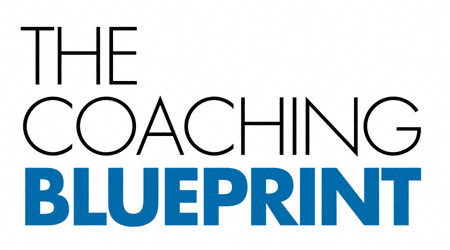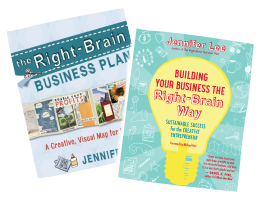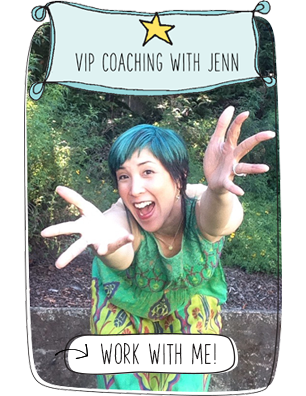Note from Jenn: I love that my friend Kate Swoboda calls herself Kate Courageous! It takes a lot of courage to live an authentic and creative life and Kate models that beautifully. Kate has put together a fantastic e-program called The Coaching Blueprint for new and emerging coaches who want to build a successful and fulfilling practice. I’m one of the featured coaches along with my colleagues Jamie Ridler, Pam Slim, Michelle Ward, Michael Bungay Stainer and more! Read on to find out more about Kate and her Coaching Blueprint program. You can order it now!
Kate Swoboda is a Life Coach, speaker and writer who helps change-makers to clarify, build, and live their big visions for the world. She’s the author of The Courageous Living Guide, and creator of the Courageous Play and Create Stillness retreats–as well as The Coaching Blueprint, a resource just for Life Coaches. When she’s not writing, coaching, or leading retreats in Italy and San Francisco, she can be found sipping chai in libraries, buffing up on her Italian, training for her next road race, or getting all bendy-stretchy on the yoga mat. Learn more at http://www.yourcourageouslife.com , sign up for her free newsletter, or follow her on Twitter: @katecourageous, Facebook: https://www.facebook.com/YourCourageousLife.
First and foremost, I need autonomy–in everything from how I market myself to the work hours that I choose to the niche that I serve. If I’m doing something that doesn’t resonate for me internally, it’s going to be a wasted effort.
Beyond that, my conditions of satisfaction include true service to my clients; creating writing that resonates with others and offers gifts that help people to change their lives; financial fulfillment and growth; plenty of time for self-care; variety.
Whatʼs some wisdom you wouldʼve loved to have received from a more established Coach before you started your own practice?
I would have loved to have heard from a mentor Coach, “It’s okay to do this your way.” Everything about school or getting a 9-5 job tells you that there’s “a right way” of going about things, and that does not automatically translate to working for yourself. There are certain things that I don’t know that someone could do without and still be successful online–such as having some kind of regularly updated blog–but there are other things, such as a fanatical obsession with good SEO practices, that are helpful but I’ve not found them to be make-it-or-break-it absolutes.
“Doing it my way” earlier in the game would have looked like–a lot less marketing/promo sounding copy, spending more time just writing for fun and less time trying to think of writing that would “achieve a desired result,” less worship of social media as the golden goose, and more trusting in what I had to offer rather than taking the view that the only way to succeed was through pressure and stress.

What was hardest about getting started?
Working through the emotional triggers. I say in The Coaching Blueprint that working for yourself is this big statement to the world that you’re living on your own terms in all areas of your life. That brings with it lots of triggers–like comparisons, for instance. I’d see someone else with a solid online tribe and think, “Where’s my tribe, my people?” and this would trigger my own insecurities. This is good–it became an opportunity for big growth and that growth is what has me feeling good about where I’m at, today.
Whatʼs the biggest challenge youʼve faced since you started your practice?
The biggest challenge has been transitioning from part-time coaching to full-time coaching, and learning how to “play a bigger game” both in the psychological and energetic sense (expanding my own capacity) and the business sense (marketing).
What do you now know, that you didnʼt know then?
That I am a great coach with something powerful to offer my clients. That I’m truly committed, and capable. That I create my life as I want it. That the most important thing that I do is create Great Work, because the truth is that the internet has so many illusory aspects to it that it is, in a sense, irrelevant when compared to the big vision living that I’m after for myself and others. What I mean by that is this: ten years from now, the concept of social media might be considered an out-dated trend, but my hope is that the work of practicing courage that I’m creating helps people now and will be something that they carry with them to guide their lives.

What inspired you to create The Coaching Blueprint? And what do you hope that people get out of it?
I created The Coaching Blueprint because I wanted to serve new and emerging coaches who are feeling the same way that I did when I started my practice: alone, overloaded, overwhelmed, and tired of scouring the internet for the answers they need. I wanted to pull together a compendium of wisdom on what it’s like to start out, and what’s helpful and what’s a waste of time, and talk about things like self-care that so many of us say we’ll “worry about later” and then burnout hits and we’re wondering why we’re doing any of this. I wanted to be a voice that said that marketing can happen your way, on your terms. Finally, I really wanted to initiate a discussion about integrity in the coaching industry that I think is sorely lacking right now, and that coaches who read The Blueprint can be a part of.
Thank you, Kate!









